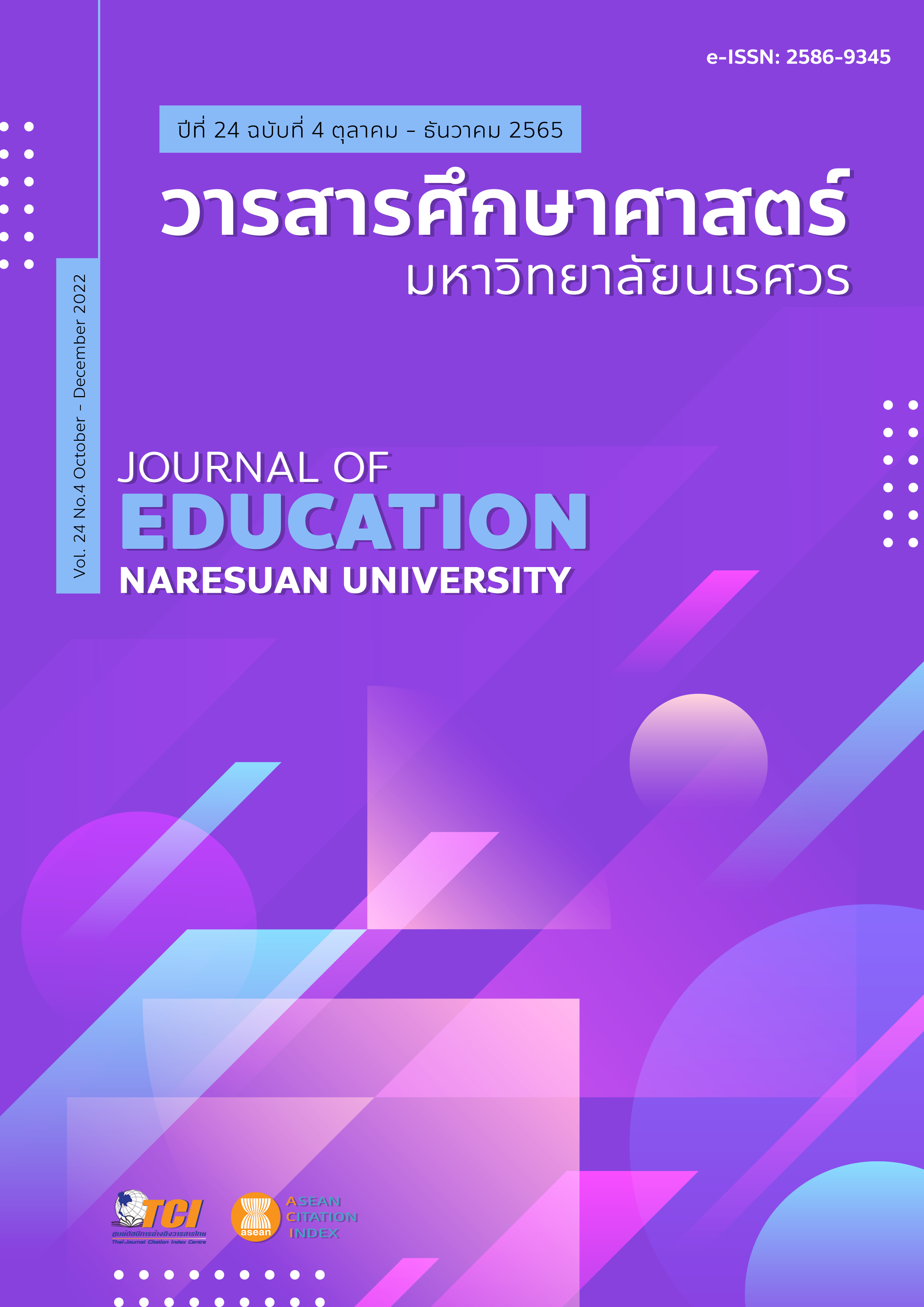THE EFFECT OF GROUP COUNSELING PROGRAM TO PROMOTING SELF-ESTEEM AMONG UPPER SECONDARY SCHOOL STUDENTS
Main Article Content
Abstract
Adolescence is the age of many changes, it may have some behavior problems occur during this age, for example, fighting, substance abuse which is caused by low self-esteem. The purpose of this study is to develop and study the effect of group counseling program to promoting self-esteem among upper secondary school students. Two groups from Secondary school students (n = 16), were selected with purposive sampling method. Students were divided in experimental group (n = 8) and control group (n = 8) with matched group method. The Quasi-Experimental research was applied in this study. The research instruments in this study were group counseling program and the revised version of Thai Rosenberg Self-Esteem Scale (r-Thai RSES) Cronbach's alpha was 0.86. The t-test dependent and independent statistic were used to analyze in this study. The result presented that after participating the group counseling program, the experiment group had a higher mean score of self-esteem ( = 31.38, SD = 3.58) before participating in group counseling program (
= 28.13, SD = 4.29) which is statistically significant (p < 0.05) compare to the control group before participating (
= 28.38, SD = 4.21) and the control group after participating (
= 27 , SD = 3.85) which is no significant difference (p > 0.05).
Article Details

This work is licensed under a Creative Commons Attribution-NonCommercial-NoDerivatives 4.0 International License.
The owner of the article does not copy or violate any of its copyright. If any copyright infringement occurs or prosecution, in any case, the Editorial Board is not involved in all the rights to the owner of the article to be performed.
References
Bootrueang, S. (2013). A comparison of group counseling effects over self-discipline and emotional intelligence of Mattayomsuksa 4 students between client centered theory and behavioral theory. Maha Sarakham: Mahasarakham University.
Child and Adolescent Mental Health Rajanagarindra Institute. (2013). Guidelines for the care and assistance of adolescents with violent behavior for personnel health department. Bangkok: Deenadoo Media Plus.
Corey, G. (2016). Theory and practice of group counseling (9th ed.). USA: Nelson Education.
Department of Children And Youth. (2020). Report on the situation of children and youth from the media of year 2020. Retrieved July 4, 2020, from https://www.dcu.go.th
Iswinarti, D., & Wahyuningsih, Y. P. (2017). Group reality therapy to increase self-esteem in adolescents. 3rd Asean Conference on Psychology, Counseling and Humanities (pp. 71–75). Amsterdam: Atlantis Press.
Jantaragrant, P. (2016). A study self-esteem of students in King Mongkut’s institite of Technology Ladkrabang. Journal of Industrial Education, 15(12), 102–109.
Kongsankam, B. (2011). A study of the results of group counseling activities based on the person-centered theory to strengthen self-confidence For students of the Faculty of Education, Maha Sarakham Rajabhat University. Maha sarakham: Maha Sarakham Rajabhat University.
Kounkroo, N. (2013). An effect of developing juveniles’ self-esteem under juvenile observation and protection centre of Nakhon Phanom Province through group counseling with existential theory. Maha Sarakham: Mahasarakham University.
Ligkachai, S. (2012). The effect of developing program on self-esteem of mattayomsuksa 1-3 students of loysaianusorn school in Lat Phrao district, Bangkok. Bangkok: Srinakharinwirot University.
Newman, B., & Newman, P. (2020). Theories of adolescent development. London: Academic Press.
Palawong, N. (2013). The efffect of bibliotherapy and gestalt group counseling on self-esteem of adolescents. Khon Kaen: Khon Kaen University.
Pholphet, K., & Tuntasood, B. (2016). Self-esteem and facebook addicted of high school students in Bangkok Metropolitan Area. Journal of the Psychiatric Association of Thailand, 61(3), 217–230.
Robins, R. W., Trzesniewski, K. H., Tracy, J. L., Gosling, S. D., & Potter, J. (2002). Global self-esteem across the life span. Psychology and Aging, 17(3), 423–434.
Wongpakaran, T., & Wongpakaran, N. (2012). A comparison of reliability and construct validity between the original and revised versions of the rosenberg self-esteem scale. Psychiatry Investigation, 9(1), 54–58.
Zeigler-Hill, V. (2013). Self-esteem. New York: Psychology Press, Taylor & Francis Group.


